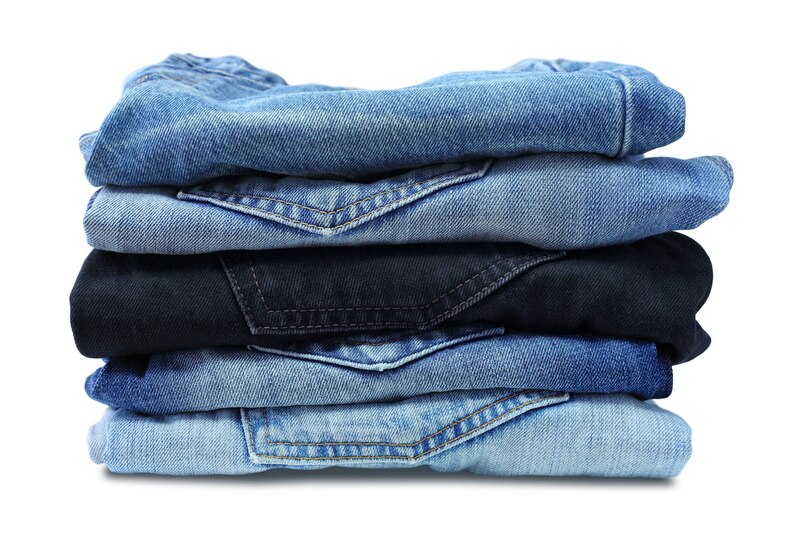In an era where environmental consciousness and ethical considerations hold ever-greater importance, sustainable clothing emerges as a powerful and responsible choice. This article delves into sustainable fashion, exploring what it means, why it matters, and how individuals can make eco-friendly choices that align with style and ethics.
From eco-friendly materials to responsible manufacturing and the art of extending the lifespan of clothing, this guide equips readers with the knowledge needed to make fashion a force for positive change. Discover how sustainability and style can harmoniously coexist in the world of fashion.
What Is Sustainable Clothing?
Its philosophy prioritizes environmental and ethical considerations in the fashion industry. At its core, sustainable clothing aims to minimize harm to the planet and its inhabitants. It encompasses various principles, including the responsible sourcing of materials, ethical labor practices, and a commitment to reducing waste throughout the fashion supply chain.
Sustainable fashion brands strive to create clothing that has a positive impact, both environmentally and socially, without compromising on style and quality. As buyers become increasingly mindful of the fashion industry’s impact, sustainable clothing emerges as a powerful choice to align personal style with ethical values.
Eco-Friendly Materials
The choice of materials plays a pivotal role in sustainable clothing. Eco-friendly fabrics like organic cotton are grown without harmful pesticides or genetically modified organisms, reducing soil and water contamination. Hemp, another sustainable option, requires minimal water and pesticides while offering durability. Tencel, derived from sustainably sourced wood pulp, combines comfort with sustainability.
Recycled materials, like post-consumer plastic bottles and upcycled garments, are transformed into new textiles, reducing the consumption of virgin resources. These materials represent the cornerstone of sustainable fashion, offering consumers an eco-conscious alternative without compromising style or quality.
Responsible Manufacturing
Sustainability in clothing isn’t limited to materials; it extends to manufacturing. Responsible manufacturing ensures that the people making our clothes are treated fairly and work in safe conditions. Ethical fashion brands prioritize fair wages, safe workplaces, and adherence to labor regulations.
Transparency in the supply chain is a hallmark of responsible manufacturing, allowing consumers to trace the origins of their garments. By supporting brands committed to ethical production, consumers play a crucial role in promoting fair labor practices and responsible manufacturing.
Extending the Lifespan of Clothing
Extending the lifespan of clothing is a sustainable practice that significantly reduces waste. It begins with responsible garment care, such as gentle washing and proper storage. When clothing items require repair, mending or alteration is favored over disposal.
This shift towards a repair-and-keep mentality reduces the frequency of discarding clothing due to minor flaws. Investing in high-quality clothing that withstands wear and tear further contributes to longevity. Sustainable fashion encourages consumers to cherish and maintain their garments, transforming them into cherished pieces that endure over time.
Thrifting and Secondhand Shopping
Thrifting and buying secondhand clothing are environmentally friendly choices with a unique charm. Thrift shops and vintage stores offer an array of pre-loved clothing that can be integrated into one’s wardrobe. By opting for secondhand fashion, consumers reduce the demand for new production and give old garments a new lease on life.
Vintage and secondhand finds often carry a story, adding character and individuality to personal style. This sustainable fashion practice is a win-win, reducing waste while allowing individuals to express their creativity through unique fashion choices.
Sustainable Fashion Brands
Sustainable fashion brands are at the forefront of the eco-friendly fashion movement. They prioritize sustainability in their operations, from sourcing materials to production and distribution. Brands like Patagonia lead the way with a commitment to environmental responsibility and ethical sourcing.
Stella McCartney blends luxury with sustainability, utilizing innovative materials such as vegetarian leather. Eileen Fisher champions simplicity and sustainability in design, offering timeless pieces that align with responsible consumption. These brands exemplify how fashion and sustainability coexist, demonstrating that consumers can make stylish and ethical choices when selecting their clothing.
Why is sustainable clothing essential?
Sustainable clothing is crucial because traditional fashion practices have a significant environmental and ethical impact. It helps reduce pollution, conserves resources, and promotes fair labor practices, ultimately contributing to a healthier planet.
Is sustainable clothing more expensive?
Sustainable clothing can be more expensive upfront due to higher-quality materials and ethical production costs. However, it often pays off in the long run because these items last longer and cost less per wear.
How can I make my wardrobe more sustainable without buying new clothes?
You can extend the life of your clothing by taking proper care of it, repairing items when needed, and exploring secondhand or vintage shops to add unique pieces to your wardrobe.
Are sustainable fashion brands only for eco-conscious consumers?
No, sustainable fashion brands cater to a wide range of consumers. They offer stylish, eco-friendly options that appeal to anyone interested in making more responsible fashion choices.
Can sustainable fashion make a real difference in the industry’s environmental impact?
Absolutely. If adopted widely, sustainable fashion practices can significantly reduce the industry’s environmental footprint. Consumer demand for sustainability is already driving positive change.
Conclusion
Sustainable clothing is not a passing trend but a responsible choice that reflects our commitment to a more eco-conscious and ethical fashion industry. By opting for sustainable materials, supporting ethical manufacturing, prolonging the life of our clothes, and exploring secondhand options, we contribute to a brighter, more sustainable fashion future. Every choice can transform the fashion industry into a force for positive change, one eco-friendly outfit at a time.


